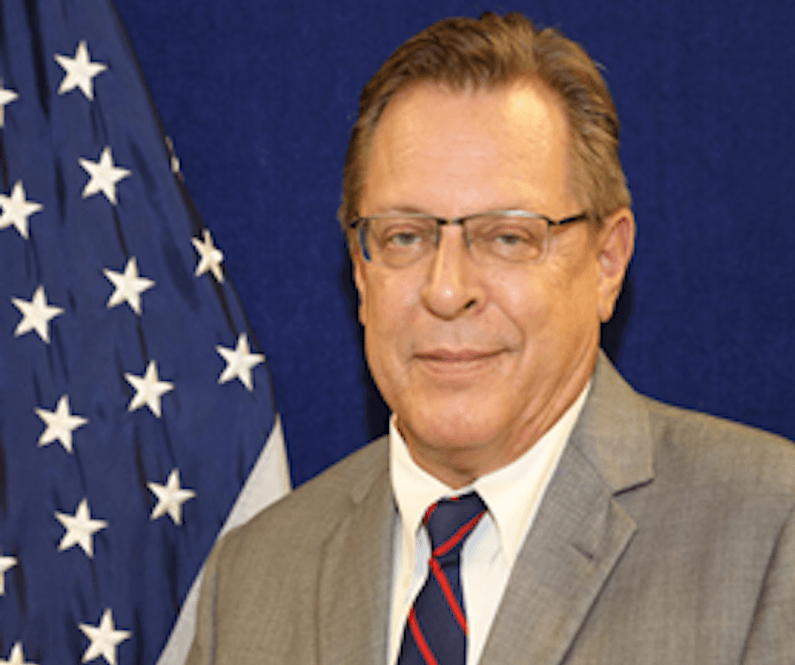
As Nigerians keep their eyes on the U.S. presidential debates and follow closely the outcome of the elections, it should be clear that Nigeria remains an important partner of the United States on the African continent and that our commitment to engage with the people and Government of Nigeria will remain strong, going forward.
The United States has held one presidential election during the four years I have worked in Nigeria and I was struck then by Nigerians’ keen interest in and detailed knowledge of the election. It’s no different this time, as Nigerians hold strong opinions about the suitability of the Democratic and Republican candidates and their chances of winning, while speculating like other global citizens about what the results portend for U.S. foreign policy in general and the longstanding relationship between America and Nigeria in particular.
As the world’s oldest uninterrupted democracy, the United States is a torchbearer of democratic values – life, liberty, the pursuit of happiness, justice, equality and the will of the people. We know the conduct and results of the presidential elections affect perceptions of the United States, at least as much as other news from America. In addition, observers view the highly anticipated and widely televised presidential debates as an early indicator of each candidate’s approach to global leadership, and how they propose to manage America’s relationship with the rest of the world.
We should all remember that while the rules and results determine who gets into the White House, successful implementation of a president’s domestic and foreign policies is not so simple.
In forming U.S. foreign policy, the president relies on input from all three branches of government – especially Congress as the legislative branch – and an array of executive agencies, including the National Security Council as the coordinating body of the executive branch. Americans historically like divided government – either with divided party control of the two houses of Congress, or with different parties in charge of Congress compared to the White House. But even under one party, which rarely happens, U.S. foreign policy cannot be formed on a whim. Under the U.S. Constitution, both the legislative and executive branches have great power to shape foreign policy as they interact with each other. And Congress jealously guards its share of power.
So what does this mean for U.S.-Nigeria relations? Relations between the United States and Nigeria have remained stable for well over a decade, with different U.S. presidents in office. The United States has consistently sought to work with Nigeria to improve the economic stability, security, and well-being of Nigerians by, in part, strengthening democratic institutions, improving transparency and accountability, and professionalising security forces.
I strongly believe that no matter who wins the 2016 presidential elections, the United States will continue its historically strong bilateral relations with Nigeria, which date back to independence in 1960. Through the U.S.-Nigeria Bi-National Commission, we continue to enjoy a close association and working partnership with Nigeria on a broad range of issues that include good governance and the promotion of the rule of law, regional security and respect for human rights, women’s empowerment, education, healthcare, and access to economic opportunity for Nigeria’s youth, and countering the menace of violent extremism.
Despite a number of challenges faced by American investors, such as inadequate energy and transportation infrastructure, a daunting array of institutions and regulations, uncertainty in information on market conditions and taxation, and episodes of regionalised instability, Nigeria continues to be a very rewarding market for many U.S. companies.
Nigeria is Africa’s most populous nation, and a significant trading partner with the United States. The visit of U.S. Secretary of Commerce Penny Pritzker to Nigeria twice within 20 months (May 2014 and January 2016) underscores how important robust economic ties are for the bilateral relationship, and the continent.
Nigeria is also the largest destination in sub-Saharan Africa for U.S. private investment, estimated at some U.S. $8 billion in 2012. Bilateral trade between Nigeria and the United States exceeded $9 billion in 2014. There is significant potential for even greater two-way commerce in a wide range of industrial sectors.
Despite a number of challenges faced by American investors, such as inadequate energy and transportation infrastructure, a daunting array of institutions and regulations, uncertainty in information on market conditions and taxation, and episodes of regionalised instability, Nigeria continues to be a very rewarding market for many U.S. companies.
Nigeria continues to be a focus country for President Obama’s “Power Africa” initiative, which aims to double the number of sub-Saharan African households and benefit African businesses with greater access to more reliable electricity. The United States strongly welcomes the Nigerian government’s efforts to reform its power sector, including measures to privatise power generation and distribution companies and remove bottlenecks to improve the policy environment for bringing stable electricity to Nigeria’s citizens.
The United States continues to stand with Nigeria in the effort to counter the menace of Boko Haram, including with security and humanitarian assistance. We continue to work with Nigeria and its neighbours in the regional effort to degrade Boko Haram’s operations, financing, and cohesion and to lessen the widespread suffering of civilians affected by Boko Haram.
On November 8, 2016, U.S. voters will choose thousands of federal, state and local officials—including a new president. They’ll do it peacefully. Winners will celebrate and losers will concede graciously and plan for the next election. As Nigerians keep their eyes on the U.S. presidential debates and follow closely the outcome of the elections, it should be clear that Nigeria remains an important partner of the United States on the African continent and that our commitment to engage with the people and Government of Nigeria will remain strong, going forward.
F. John Bray is the United States Consul General in Lagos, Nigeria.
END

Be the first to comment